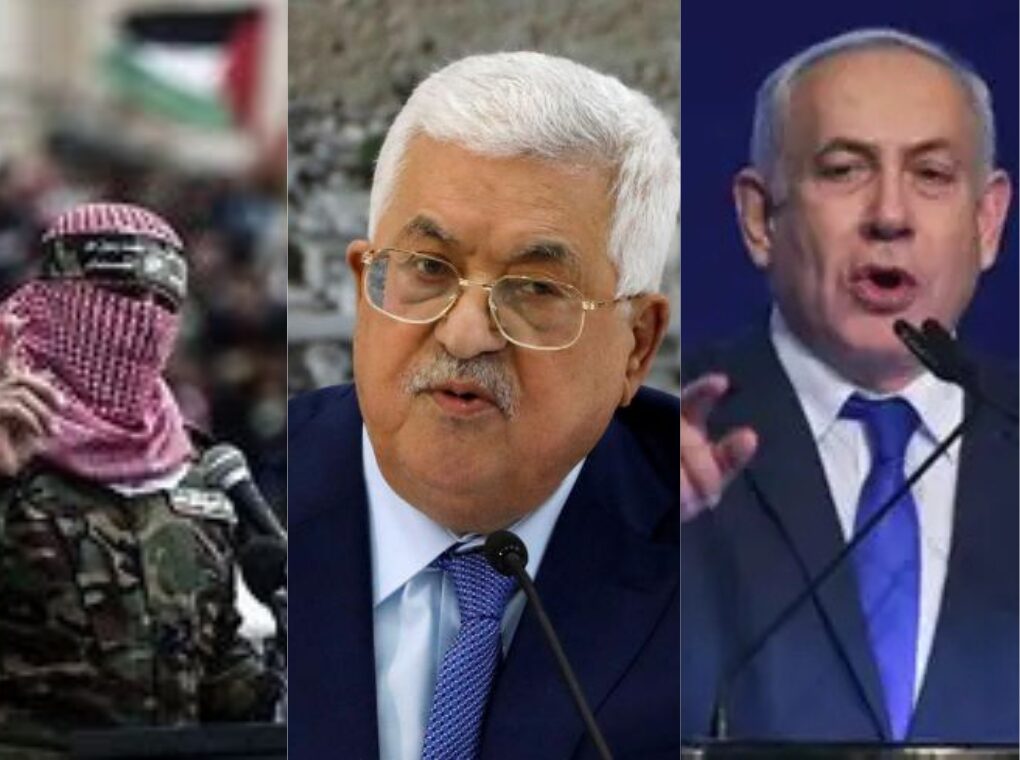In a growing chorus of regional condemnation, Palestinian Authority President Mahmoud Abbas and leaders from across the Gulf have called on Hamas to release Israeli hostages and agree to a ceasefire, as the humanitarian crisis in Gaza deepens.
Despite relentless bombardment, mounting civilian casualties, and widespread starvation, Hamas continues to reject calls for peace, raising questions about its long-term strategy and moral responsibility.
Over the past weeks, leaders from Saudi Arabia, the UAE, Qatar, Bahrain, Kuwait, and Oman have reportedly urged Hamas to de-escalate the conflict and prioritize the lives of Gazan civilians.
According to senior diplomatic sources, these appeals have been met with silence—or outright refusal—from Hamas, which maintains its resistance despite the escalating cost to the population it governs.
President Abbas, who governs the West Bank under the Palestinian Authority, has publicly distanced himself from Hamas’ tactics, emphasizing that the Palestinian struggle for statehood cannot be won through endless cycles of violence that disproportionately harm innocent people.
“Gaza is suffering—its children are starving, its families are in ruins,” said a senior Palestinian Authority official. “Hamas has a moral obligation to stop the bloodshed.”
Humanitarian Collapse in Gaza
The Gaza Strip is on the verge of total collapse. International aid organizations report catastrophic levels of malnutrition, with entire neighborhoods cut off from food, water, and medical supplies. The U.N. has warned that the population faces a “complete breakdown of civilian life.”
Yet, despite these conditions, Hamas refuses to release the remaining Israeli hostages taken during the October 2023 attacks, nor does it show a willingness to enter into a sustained ceasefire agreement.
Critics argue that Hamas is using the suffering of Gaza’s people as a tool for political leverage, broadcasting the humanitarian crisis to the world while continuing military operations from within civilian areas.
“Hamas is not just fighting a war on the ground—they are engaged in a global information campaign,” said a Gulf analyst based in Doha. “They are weaponizing images of destruction to shape public opinion and divert attention from their refusal to accept peace.”
Western Silence and Responsibility
In Washington, Brussels, and other Western capitals, governments continue to call for restraint from both sides, but many have avoided direct criticism of Hamas’ leadership strategy, focusing instead on Israeli airstrikes and the broader need for a negotiated solution.
Some experts and commentators say this approach ignores a critical truth: that Hamas has the power to prevent further civilian suffering by accepting peace terms already supported by the Palestinian Authority and most Arab states.
“If Hamas truly represents the interests of Palestinians, why is it allowing Gaza’s children to die from hunger instead of seeking a ceasefire?” asked one European diplomat, speaking anonymously.
Calls are growing louder for Western governments to demand more accountability from Hamas, particularly regarding the fate of Israeli hostages and its role in prolonging the humanitarian disaster.
Information Warfare as Strategy
Observers say Hamas’ current strategy appears to hinge less on battlefield victory and more on psychological operations (psyops) aimed at generating international outrage and isolating Israel diplomatically.
“Hamas understands the global media environment,” said a senior intelligence official from a Gulf country. “They know how to manipulate images and stories to pressure the West into concessions—while continuing to hold hostages and operate from civilian infrastructure.”
A Turning Point?
The growing criticism from Arab leaders—particularly those who have historically supported the Palestinian cause—could signal a turning point in regional attitudes toward Hamas. With increasing calls for disarmament and humanitarian intervention, the group may face intensified diplomatic isolation if it continues to reject ceasefire proposals.
Meanwhile, the people of Gaza continue to suffer under the weight of a war they cannot escape. Food lines grow longer, hospitals collapse under the strain, and families bury their dead in silence.
Whether Hamas will respond to this pressure—or double down on its current course—remains uncertain. But as regional patience wears thin and the humanitarian toll rises, international attention may finally turn not just to the tragedy of Gaza, but to those who prolong it.
